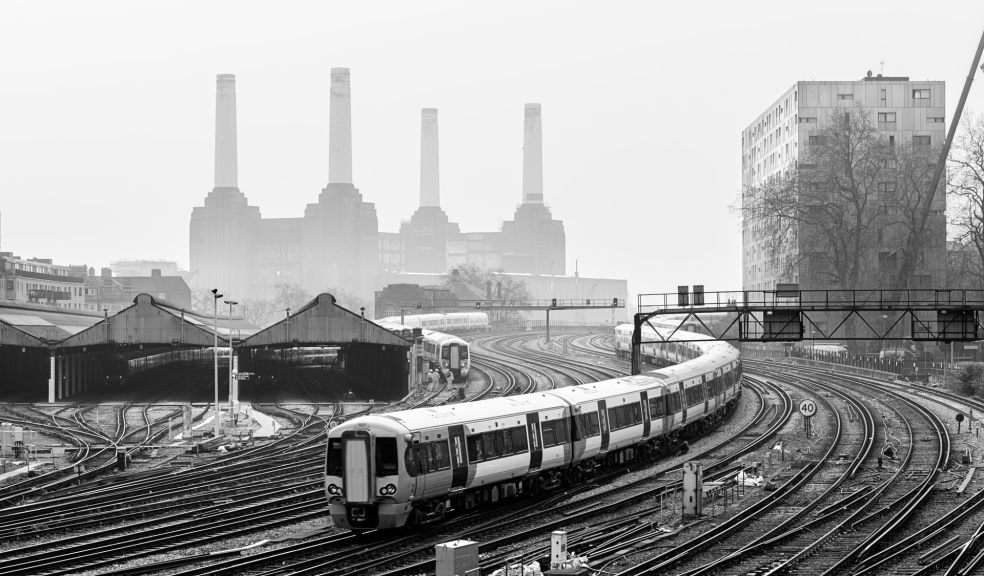
Understanding the importance of trains for the UK
The UK is home to one of the busiest rail networks in Europe, running over hundreds of trains every day. If you've ever tried to travel long distances by train in the UK, you'll know how important they are. There aren't many forms of transport that can take you from the coast of England to the far-flung corners of the UK as efficiently as the train. But what makes the British rail system so vital to the British economy and the people who rely on it each and every day?
History of British Railways
Railways in the UK began life as a series of wooden "wagonways" as far back as the 1500s. Nevertheless, the tracks that people more commonly associate with the railway systems began properly in the 18th century as a part of the industrialisation of the UK. They were locally operated and isolated from one another up until the 1840s when the "railway boom" began to connect the disparate networks and expand the entire length and breadth of the nation. Since its inception, British railways have tended to go down the route of privately owned and operated networks, but this changed during the onset of the first world war when it was brought under the auspices of the government. However, after the war had ended, the government be-privatised the network, and by 1923, it was entirely operated by what is now referred to as the big four, which comprised of:
- The Great Western Railway
- The London and North Eastern Railway
- The London, Midland and Scottish Railway
- The Southern Railway
Nonetheless, by the time the second world war had ended, the decidedly more left-wing government of the Labour government. This amalgamated the big four operators into one fully nationalised British Railways company. This lasted for 46 years until 1994, when the then Conservative government led by John Major decided the time was right to re-privatise them to boost perceived inefficiencies in the system. However, several reasons led to this decision, including declining passenger numbers and an unwillingness by the government to continue subsidising what they considered to be an inherently inefficient form of management. From there, the railway system set up Network Rail, a not for profit organisation, which oversees the operation and maintenance of the tracks. They also lease out local franchises to privately operated train companies on behalf of the government to create what is now a quasi-national rail network.

How Important Are The Railways To The UK?
Having learned about the history of British railways, you might be wondering what their importance was for the UK as a whole?

Enables Social Mobility
The railway was the first built in Britain, which helped boost economic growth. It allowed people to travel further and farther away from their homes, which increased social mobility. The railway was the first public transport system in Britain, and many argue it is responsible for boosting modern society's growth. The railways have also changed the way people live their lives by providing them with more choice and giving them access to different places of work, education or leisure. Furthermore, the construction of railways meant that people had more access to good quality transportation which increased their mobility significantly. This meant that people could move out of overcrowded cities where they could not have a better life on their own terms or access new opportunities for themselves or their families.
Even today, you can see this in the UK's heavily privatised system, where companies offer a vast range of incentives such as off-peak pricing and split ticketing options to continue using their trains. For example, by splitting your ticket, you can often save money with minimal disruption to your journey. However, when looking for a split ticket, it is best to use a dedicated service that can help you to find the best deals. Although you can do this by yourself, you will often save more money and have less hassle when you can see which options are available for your specific journey.
Contributes Enormously To The Economy
In 2019, the railway sector in the United Kingdom generated £42.9 billion in gross value added (GVA), supporting 710,000 jobs. Every area had above-average performance and salary levels, both on the trains and in the rail supply industry. When looked at in isolation, this is a significant amount. Still, when examined as part of the broader economy, you can see the distinct direct and indirect benefits that it provides. Railways have influenced the economy ever since their inception by expanding the number of choices for people regarding where they can live or work and how they can travel. It has also created a much larger economy across England, Scotland, and Wales by linking towns and cities together via lines such as London to Edinburgh, which dramatically reduced the time taken to travel around these economic zones.
It Is An Easy And Affordable Way To Transport Vast Amounts Of Freight
Rail freight is a vital aspect of the supply chain because it is the most flexible and safest option. Rail freight transportation delivers goods to their destination more cost-effectively than any other mode of transportation. The importance of the supply chain is further reinforced by the fact that it is more economical than air or sea freight. This, in turn, leads to higher profits for the enterprises involved and more access to the goods that consumers demand. Freight traffic is critical to the British economy's long-term viability. Its role in a logistics network plays a crucial role in ensuring continued competitiveness and company wealth generation. Rail freight will become more and more common in the UK over the next 30 years as imports become the norm.
A Significant Part Of The National Psyche Has Been Shaped By Railroads
In many ways, the railway system of the United Kingdom has had an oversized influence on how the national identity has developed over the last 150 years. From taking pride in being one of the first countries worldwide to implement a nationwide and interconnected track and being a hot topic in politics, it has shaped how British people think about themselves.
In conclusion, the importance of trains cannot be overstated. They are the backbone of the UK's economy; they are essential for efficiency and provide a mode of transportation available to all walks of life. In essence, they are an integral part of everyday life.














